JULY 2023



2023 SUMMER
FUN GUIDE




WE BUY & SELL LOUIS VUITTON CHANEL GUCCI PRADA FENDI 149 SOUTH MAIN STREET | WWW.THELADYBAG.COM | THELADYBAGLV SHOP HERE 115 South Regent Street • Salt Lake City UT, 84111 mckaydiamonds.com • (801) 359-0192 A Stunning Selection of Fine Jewelry as well as Custom Designs Same Day Jewelry & Watch Repairs
Francia
Dung

Kaelyn
Tani

Chase
Nicole
Francia
Kelli Christine Case
Rachel Fixsen Brooke Hannel
Golda
Holly Lammert
Tani Leavitt
Connie Lewis
Amiee Maxwell
4 | utahstories.com SPOTLIGHT JULY 2023 | UTAH STORIES MAGAZINE | VOLUME 11 ISSUE 37 WE POST STORIES AND PHOTOS ALL THE TIME. FOLLOW US @ UTAHSTORIES 26 Moab Elevate Outdoors—A Highline Guiding Venture 34 Ogden Utah’s Gift Shop Kings 38 Food Summer In Red Rock Country 54 Sugar House Parley’s Trail Nears Completion PUBLISHER/EDITOR Richard Markosian Golda Hukic-Markosian PUBLISHER’S ASST. Connie Lewis SALES & ACCOUNTS Golda Hukic-Markosian Matt Lovejoy Matt Pyne DISTRIBUTION Connie Lewis DIGITAL PUBLISHER & MARKETING & EVENTS Golda Hukic-Markosian COPY EDITOR David Jensen GRAPHIC DESIGN Anna Lythgoe Fletcher Marchant PHOTOGRAPHERS
Henriquez Benson
Hoang
L. King
Heather
Korte
Leavitt
Pinkney/Caputo’s
WRITERS
Jason Strothe
Anderson
Henriquez Benson
Hukic-Markosian
Heather L. King
COVER Dung
LOCAL & AWESOME?
Stories invites excellent local businesses to inquire about our advertising rates
readership
at
or visit utahstories.com/advertising 6 Utah Stories Contributors 12 Experience The Joy Of Discovery! The beauty of Utah 14 5 Ways To Get The Kids Out Of The House Summer boredom busters 16 Liberty Park Drum Circle Salt Lake’s house band 20 Crawdad Canyon —Veyo, Utah Heaven on a hot day 24 The Future Of Sports Is Female This is NOT powder puff football! 44 Caputo’s Market & Ritual Chocolate Unite To Create A Truly Wild Chocolate Bar Preserving wild cacao 48 Food For Families Project Helping those in need 52 The Legacy Of Johnson Farms From cows to crops 58 Immigrants Renew Diamond Legacy Generations of gemstones
Hoang
Utah
and determine if our
is a good fit. For more information please contact Richard
801-856-3595
THE STATE ROOM

DEER VALLEY

ECCLES THEATER
SANDY AMPHITHEATER
FOR MORE INFORMATION, VISIT US AT THESTATEROOMPRESENTS.COM SUMMER
MUSIC STARTS HERE
7/1 LYLE LOVETT AND HIS LARGE BAND Postfontaine Presents 7/30 LUKAS NELSON & POTR Postfontaine Presents 9/1 TASH SULTANA Postfontaine Presents // North American Tour 2023 8/258/26 GRID CITY FEST Local music + community COMMONWEALTH 8/298/30 8/5 JOE BONAMASSA 7/267/27 RAIN: A TRIBUTE TO THE BEATLES Abbey Road & The Rooftop Concert Live GREGORY ALAN ISAKOV with Special Guests Shovels & Rope
7/13 OLD CROW MEDICINE SHOW KRCL Presents // with Willie Watson 9/2 8/11 7/16 8/58/6 GREENSKY BLUEGRASS KRCL Presents // with Amanda Shires CAAMP KRCL Presents // with Fruition MICHAEL FRANTI & SPEARHEAD KRCL Presents // Big Big Love Tour 2023 // with special guest SOJA KENNY LOGGINS This Is It! His Final Tour 2023
8/24 JESSE DANIEL 8/26 SURPRISE CHEF KUAA Presents 8/20 DALE WATSON & HIS LONE STARS 8/2 JORMA KAUKONEN Utah Blues Festival Presents 8/4 THE MEDICINE COMPANY Album Release Show
BEHIND THE STORIES
Brooke Hannel
Brooke Hannel is a Utah local who graduated from Utah Valley University with a degree in journalism in 2021. Since then, she has worked as a freelance writer and has words in Teen, Vogue, Refinery29, and SLUG Magazine. When she is not writing, you’ll find her reading outside or playing with her dog.

Heather L. King
Heather is a food and beverage writer and anonymous restaurant critic for a variety of publications in Utah. She’s happy to have reported on Utah’s changing food landscape for more than 20 years. When not dining out, you’ll often find her at local farmers markets shopping for fresh produce and meeting local vendors.
During the pandemic lockdown, she spent her time perfecting gin cocktails — often using locally produced spirits and garnishes. She shares her love of great food with her husband and two Great Danes.
Her passion for traveling is fueled by experiencing the food cultures of other countries and regions. She owns SLCLunches.com, and you’ll find her sharing her favorite dishes @slclunches.


Tani Leavitt
Tani Marie Leavitt is a freelance writer who lives in Bountiful, Utah and is a University of Utah graduate with a Bachelor of Arts degree in English with honors from Sigma Alpha Pi. She has written hundreds of fictional narratives and essays. Tani served a mission for the Church of Jesus Christ of Latter-day Saints in Rosario, Argentina. She is part of a Hispanic/White background and grew up in Las Vegas close to the hood, and considers herself an honorary gangster thanks to the good friends she has there.
She is the founder of the Bountiful Writers’ Club and has co-authored several books, and screenplays. She loves reading the classics along with action, fantasy, and mystery. She writes young adult fiction and children’s stories for fun, some of which are on the verge of being published. Her purpose in writing is to “teach life lessons and spiritual values” as well as “take you on a heart-breakingly lovely wild adventure”.
Today, Tani is pursuing her dream of being a published novelist and screenwriter, in between the multitudinous demands of adult life. When she is not writing, she is usually on a walk with her cat. She loves working out at the gym, archery, and playing tennis. Tani looks forward to change and is full of ideas. When online, she is constantly looking for ways to better the environment and participate in innovation. She hopes that one day she will be one of the great authors of her time.





404 S West Temple • Salt Lake City, UT ~ Wine Bar ~ 801-359-2814 btgwinebar.com ~ Italian Cuisine ~ 801-364-8833 caffemolise.com Buffet service, plated meals, & cocktail events. Fixed price menus & custom menus are available. email info@caffemolise.com for availability & more information. Private Meeting Space • Corporate Events Pharmaceutical Trainings • Weddings • Rehearsal Dinners Holiday Parties • Family Reunions • Anniversaries Now Open For Events! BTG Private Rooms 14 guests ages 21+ Caffé Molise Main Level Private Room up to 26 guests Caffé Molise Patio up to 100 guests Caffé Molise Banquet Level Dining Room ~ up to 150 guests




Chime in with Mayor Rocky Anderson & Homeless Advocate Ty Bellamy
@american236
It’s not about housing the homeless, it’s about educating them and helping them become self-reliant and helping them get their needs met, their physical, mental, emotional and family needs met. It’s a lot more than just homelessness. These people have some serious personal problems going on in their lives that need attention.
Comments on Instagram about the hasty demolition of the Utah Pantages Theater—one of the most historic buildings in all of Utah.
vertical_diner_slc
This is very, very sad. We want to have history. We know that history is not just on paper but in physical form that we can look at, touch, feel and sometimes taste. We need to put an end to this madness. Most developers are not here for the long term. Most only think in terms of 5-10 year returns. Time to come together to finally put a stop to this destruction. Let’s just act logically and reasonably. Balance is key. This is not a balanced approach.
duendelounge
I’m glad you are writing about this. @hines rushed to tear it down because of all the notoriety they were getting because of the lawsuits @avengetheutahpantages was creating. It made them nervous and they wanted that property that was next to the Kearns building they already own. It’s a total disgrace and a massive loss to taxpayers and residents of Utah.
A comment on the Instagram Reel regarding homeless camps abatements.
Golancers82
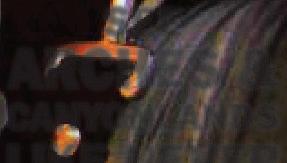
I think it should be criminal to take other people’s property. Yes, I know that there needs to be something done about so many people on the streets, but I hope that everybody is realizing that [Mayor] Mendenhall does not care about them and never has. Just another phony. During the winter, nobody should have frozen to death. There were plenty of businesses that were empty that could have housed the homeless but they chose not to. Remember that when it’s time to vote, people!
Visit UtahStories.com for exclusive online content including our Utah Stories podcasts.







Follow us on Facebook, Instagram, & YouTube

ONLINE COMMENTS
Comments in response to the YouTube Video:
Family Owned & Operated www.SkydiveMoab.com SINCE 2003 • Video and photo packages • Over 50,000 jumps 50+ years experience • Must be 18 yrs + under 250 lbs • Located at the Moab Airport 435-259-JUMP (5867) CALL NOW!








282 EAST 900 SOUTH SALT LAKE CITY, Ut TUESDAY TO SATURDAY 11:30 AM - 9:00 PM Utah's best tacos, margaritas, street corn in a bowl, and burritos! 801 582- 5807 www.ruthsdiner.com 4160 Emigration Canyon Road Breakfast until 4 pm (2 miles East of Hogle Zoo) Lunch & Dinner Open Thursday - Monday CREEKSIDE PATIOS ARE NOW OPEN OPEN UNDER NEW HEALTH DEPARTMENT GUIDELINES WEEKNIGHT MUSIC
EXPERIENCE THE JOY OF DISCOVERY!
Visit Utah’s Spectacular People and Places
 By Golda Hukic-Markosian
By Golda Hukic-Markosian
In the fall of 1998, I landed in Salt Lake City. My initial excitement about seeing all the lights from the plane was quickly replaced by a deep disappointment when I stepped onto a mostly deserted Main Street.
There were no centuries-old buildings or cathedrals to visit. The one and only attraction was the LDS Temple and the gardens surrounding it. There were two big malls, but shopping was not exactly my thing. I soon discovered Green Street on Friday nights and Port O’Call on Saturday nights, but what else besides clubbing was there to do? How was a girl
going to have fun on her day off?
Liberty Park and Sugar House Park were definitely worth strolling through, but was there something more unique to this place?
That’s when I discovered Millcreek Canyon and Little and Big Cottonwood Canyons, and I fell in love with hiking. I soon realized, however, that camping was not my cup of tea. Stray cows in the desert, raccoons stealing my food, and a general abundance of dangerous wildlife were not a plus in my book. I am more of a hotel type of girl.
DUNG HOANG
It took meeting a born-and-raised PHOTO BY
12 | utahstories.com
Utah.
Moab,
Utahn to entice me to venture out of Salt Lake and experience the beauty of Moab, Zion, and Escalante.

At first I was weirded out. I had never seen anything like this. Where I come from, the outdoors are green, and mountains are filled with thick forests. These weird red rock creations were just places I saw in old John Wayne movies. I now had the opportunity to experience the ‘Wild West’ and enjoy ‘ungirly’ activities such as river rafting and rock climbing.
Salt Lake City and Ogden have changed drastically over the past two
decades. We have many upscale bars and restaurants, and finding a craft cocktail is not a problem anymore. We have multiple highrise hotels, and apartment buildings are sprouting up everywhere. The urban population has increased exponentially, but nature stayed just as beautiful and inviting as it was 25 years ago.
In this issue of Utah Stories, we invite you to have fun in nature and visit some small towns and out-of-the-way places you don’t usually think about, or may not even know about.
utahstories.com | 13
5ways to get the kids out of the house

How To Beat The Summer Doldrums
By Connie Lewis
14 | utahstories.com
Summer is here, the kids have been out of school long enough to get bored, and they don’t want to hear the same old ideas. So, what’s a parent to do? Here are five ideas to get the kids out of the house without breaking the budget:
1. Explore the diversity of Salt Lake by visiting the ethnic markets around town. Chinatown Supermarket on 3390 S State is a wonder, packed full of exotic foods, sweets, and drinks. The market also includes an extensive fish section in the back and a fruit and vegetable aisle with everything from fresh golden pillow durian to Dalian wild red jellyfish. Other markets in town include Shahrazad Restaurant and Market for Middle Eastern fare, Japan Sage Market, and The Old Dutch Store, with a wide variety of chocolates, deli offerings, and more.
2. Go to a Star Party. The Salt Lake Astronomical Society sponsors stargazing parties throughout the year. The calendar of events is on their website. In July, there are parties scheduled on July 28 at Granite Library, 3331 S 500 E, and on July 29 at Stansbury Park’s Observatory Complex. The society recommends arriving early for the setup, and the event continues from sunset to around 11pm. Star Parties are informal events and those participating are happy to answer questions and point out stellar viewing opportunities.
3. Everyone loves a parade, but not everyone loves standing on the side of the road in the heat. No worries. On July 21 and 22, from 11am to 9pm, some of the floats will be set up
for viewing at the Mountain American Expo Center. Vote on favorites, participate in the games & activities, and meet some of the parade royalty. This is a free admission event, with a cost for some activities. The only thing missing is the marching bands.
4. The Salt Lake County Library System is onboard to keep the kids happy. With everything from story times at individual libraries, to craft classes and scavenger hunts, local library branches have lots to do and discover. The Kearns Library, along with others have telescopes to check out, a 3D printer lab, and computer access. Various libraries are offering classes throughout the summer in partnership with the Natural History Museum of Utah, called Backyard Naturalist. The class aims to teach kids about the biodiversity in their own backyards and tips on how to be a citizen scientist. Dates and times are on the SL County Library website.
5. Another way to explore Salt Lake is on the mountain trails. There are several kid-friendly hikes close by. Lisa Falls is a 0.3-mile hike that is suited for toddlers with a beautiful waterfall as a reward at the end. For older kids, there is the 2.5-mile Dog Lake hike and a 3-mile Donut Falls hike. There are hikes that match all skill levels with recommendations from All Trails. Bring grandma and grandpa. Bring everyone!
With a city as rich and diverse as Salt Lake, there is no reason for anyone to sit at home wondering what to do this summer.
utahstories.com | 15
Drumming up culture
More Than A Circle, Its A Community
By Kelli Christine Case
The thunderous percussion of barrel drums and the rhythmic ‘tink’, ‘tink’, ‘tink’ of cowbells reverberate through an otherwise silent Sunday afternoon in Salt Lake City.
If you’ve lived in or visited Salt Lake for any amount of time, you probably know about the drum circle at Liberty Park on Sunday afternoons. It’s been consistent for decades; some old-timers guess it’s been going since the 60s. While it’s gone through natural cycles of growth and contraction, today, the drum circle is more vibrant than ever.
If you drop in to the drum circle on a random Sunday this summer, it’s likely

you’ll see hundreds of people gathered for the sound of the drums along with a whole lot of other free expression. You’ll see people practicing flow arts like fire spinning, dancing, live painting, and even live tattooing. Someone recently brought their sewing machine. Beyond the core drummers and dancers, dozens more relax on blankets, toss balls, and enjoy themselves.
For one of the lead drummers, Carlos Bible, the growing drum circle community is more than a hobby. “I care more about the drums than my career at this point. I’ve been a cameraman and director for many years. But now I’m
16 | utahstories.com
PHOTOS BY KAELYN KORTE
more about creating experiences for people to connect in person and in the moment, rather than shooting images that people watch at home alone. This is so much more fulfilling.”
He began showing up to the drum circle several years ago with just a cowbell, which he’d play to help the novice drummers hold the tempo, drawing on his years as a percussionist when he was younger. He continued participating weekly, usually drumming all day. During the pandemic, he built giant drums out of two 55-gallon oil barrels. Because of their size, their sound carries further and draws in a larger crowd. That was a turning point for the growth of the circle. “There are hundreds of people gathering now. We’ve become like the house band of a free event that Salt Lake CIty is so gracious to let us do.”
For some, the drum circle has a rough reputation. The park has its fair share of homeless campers loitering, many of them with addictions. There have been shootings and stabbings at the park. Sometimes the scene is not very pretty, and that keeps people away. But for Carlos, showing up to drum is his way of beautifying the park and making it a place for children and families. “A kid can’t be within a hundred yards of the drum and not pull their parents towards us.”
He shared about the positive feedback loop they create, “As we drum, we see it have a positive effect on people. Drumming is something I feel good about and give away freely.

When I see one person enjoying it, I keep going. That’s some of the highest currency on the planet.”
An average of 12-15 core drummers hold the beat, and more than 50 people show up with instruments of all kinds. One drum leader, Dan Nelson, brings other percussive instruments like shakers, tambourines, bells, cymbals, and whistles, to help the group keep a cohesive groove. And he introduces various rhythmic styles from around the world. To get the group going, he leads through a tempo like the samba, for example, and invites the other drummers to follow. And then it takes off, sometimes for 25 minutes.
utahstories.com | 17
Gabrielle Nellson dancing. Carlos Bible in the background on the right striking ‘more cowbell’.
Dan shared, “We want people to know that the community is really loving. Come experience that love and share in the commonality of the drum. We want you to have a wonderful experience. You can bring your family, or a date, or just come meet new friends.”
People start drumming around 11am-12pm most Sundays. But the drumming really takes off around 3-5pm, and many people stay until after dark. It’s a free event with no real leadership or organizational structure. If you want to get involved, just show

up. There are also Facebook groups for staying in touch outside the events. And for anyone interested in learning to drum, besides just coming to the drum circle, Carlos recommends the book Drumming at the Edge of Magic by Jay Stevens and Mickey Hart.
Carlos praised the current state of the drum circle, “What we have is so good. I’ve lived long enough to recognize how special this is. Let’s keep feeding it so we can pass it on to whoever is coming next. Because someone did that for us.”
18 | utahstories.com
Drum Circle participants enjoy the beat.

















(801) 886-1700 DON’T GET JERKED AROUND GET APPR TAYLORSVILLE 4238 South Redwood Rd, Taylorsville, UT 84123 OGDEN 3213 Wall Avenue, Ogden, UT 84401 1818 Main St, Logan, UT 84341 LOGAN 24 W 12300 S Draper, UT 84020 DRAPER 1232 W Utah Ave, Tooele, UT 84074 TOOELE $24,288
2017 Nissan Titan V8 5.6 Liter $22,997
2017 Ford Escape 4-Cyl 2.5 Liter
CRAWDAD CANYON Veyo’s Desert Oasis
By Nicole Anderson
The scents of summer – coconutty sweet sunscreen, deep-fried corn dogs, and the sound of rock climbers in the background are what you will find in the desert oasis of Veyo — a small resort town in Southern Utah. With temperatures generally 10 to 15 degrees cooler than nearby St. George, the lush green shade of Crawdad Canyon makes the perfect summer hangout.
“I remember swimming at the Veyo Pool my entire life; that’s where my grandpa taught me how to dive,” said Tasha Braken, who now resides in Enterprise with her husband and two young boys, Rydge, 11, and Sadlyr, 8. She
remembers spending the day with her cousins and grandparents at the pool.
To this day, memories of the Veyo Pool always seem to find their way into casual conversation when spending time with the family. Now, Braken has extended this family tradition to her children, and usually spends a couple of days a month relaxing in the cool oasis of the Veyo Pool.
The Veyo Pool was founded in 1927 by James and Caroline Cottam, who obtained the land through the Homestead Act. The couple, along with some ingenious foresight, built a simple cement pool, fed by a nearby 83-degree

20 | utahstories.com
PHOTOS
COURTESY OF THE VEYO POOL
Swimmers cool off in Veyo Pool’s crystalclear water.
hot spring in a part of the Basin and Range/Colorado Plateau transition zone where there are higher concentrations of geothermal activity.
Over time, the Cottams expanded the pool, adding dressing rooms, an office building, and an orchestra pit where people danced as they listened to music performed by local talent.
Veyo is located at the heart of several small towns, and the pool was and is the happening place to be on a hot summer day. It has changed over the 96 years since it was created by the Cottams, from a simple rectangular swimming pool into the rock-climbing paradise and family fun retreat you see today.
“The pool is emptied each night and refilled with crystal-clean water for each day for swimmers, using the smallest amount of chlorine possible to meet environmental regulations,” park manager T.J. Packer said.

Braken’s boys spend hours swimming in the pool or wading in the river
catching crawdads. These non-native crawdads were brought to Utah in the late 50s and occupy mostly rocky or weedy shorelines where they can seek shelter from predators like raccoons and herons, and although it isn’t known how they ended up in Crawdad Canyon, it is a perfect hideout for these crustaceans to call home.
“The property has had three owners throughout its history; the Cottams, the Bosse family, and currently Joe and Sarah Salisbury. Despite all that the Cottam family had created, the surrounding canyon was relatively untouched.
Jim Bosse, was a visionary seeing what the canyon could become. He teamed up with rock climber Todd Goss, who along with his team transformed the canyon walls into the first, and perhaps only, privately owned outdoor rock-climbing park in the nation.
Goss’ team developed 250 bolted climbing routes 85 feet high in the solid basalt walls that surround the canyon. Each route is identified at its base with its name, difficulty rating, and the name of the climber who made the first ascent.
The goal was to create a safe climbing experience, said Goss, who owns Paragon Adventures, a St. George company specializing in rock-climbing, canyoneering and hiking. With the bolts already in place, he explained, the canyon is great for beginners with some experience, but it’s not for newbies.
Compared with indoor climbing gyms, outdoor climbing adds potential dangers like scorpions and bees, as well as loose and slippery rocks. Goss recommends wannabe climbers take a class before attempting the Veyo course.
The routes range in difficulty from 5.6 to 5.13 on the Yosemite scale. In layman’s
utahstories.com | 21
terms, 5.0 is the easiest route in the world — like a sidewalk — while a 5.4 is something like Angel’s Landing in Zion National Park, with its steep trails, chains, and cliffs. A 5.10 is a sheer cliff face and far more adrenaline — like El Capitan in Yosemite.
“Climbing is about purely existing,” Darren Edwards said. “When you’re climbing, you’re not in your head, you’re not self-conscious and you are always in the present moment.” The park does not rent equipment, and at least one person in the group must have extensive climbing experience before taking on the wall.
Several years ago, Michele and Chase Sullivan traveled across the country from Louisiana to Salt Lake City, Utah to visit family with their grandkids in tow, and decided to stop in Veyo for the day. It didn’t take long before they found the cool waters of the Santa Clara River flowing through Crawdad Canyon. Chase, a big outdoorsman, showed the kids how to be safe when picking up crawdads and how to avoid the pinchers — like that of a lobster. Crawdads are generally friendly creatures, but a nip from a claw can be painful. So, watch out!
After a day of climbing, swimming, or catching crawdads — or all three — regulars grab a Pronto Pup, a handdipped specialty corn dog made from a 93-year-old family recipe; onion rings and a Veyo Pie Shake consisting of a slice of famous Veyo pie; key lime, raspberry-rhubarb. “The shakes are just the

best,” said Braken, “but the Pronto Pups are the very best!
This sweet little oasis, nestled in the canyon overlooking the Santa Clara River, is truly one of southern Utah’s best-kept secrets. After a day of playing and camping beneath the stars, small glowing embers flitter into the night sky from the nearby campfire. S’mores and tales from an amazing day complete the adventure, and a Pronto Pup and pie shake only leaves you wanting more. After all, who could get enough of a place like this?
22 | utahstories.com
Boys race to get back in the pool.






CANYON MEADOWS RANCH Visit www.CMRBeef.com for retail locations Direct orders: grassfed@CMRBeef.com or (435)823-3253 Follow us at Facebook.com/CanyonMeadowsRanch FROM OUR FARM TO YOUR TABLE • Local product • High quality and flavor • Offering wholesale & weekly delivery
Tackling gender equality
Utah’s All-Female Tackle Football Team Inspires The Next Generation
 By Holly Lammert
By Holly Lammert
Stereotyped roles of masculine and feminine do not lead to this scene. The crowd cheers, watching football under the lights and the glow of setting sun at Skyline High School for the Western Conference play-offs. I wasn’t sure what I was going to find there. Would there be women in lingerie or powder-puff-style football for cheap entertainment? But that thought left my mind as the National Anthem was sung and the game began in traditional fashion. Except for potentially gentler tackles, this is American Football at its finest.
The announcer boasted, “In case you
don’t know, the team is in their 8th season, with quite a winning streak at 76 to 9, and taking home 2 national championships. They are also the biggest team at 54 players and 12 coaches.”
They are one of the best in the country, and their specific program of inclusion and support ensures that.
I caught up with Laci Miller and she described the “the Falconz way,” where people of multiple backgrounds and careers, from construction to business, differing religions, moms with families, some who had never played a sport in their life, are welcome. “There is a spot for everyone,” she said. While many
24 | utahstories.com
PHOTOS BY JASON STROTHER
have diverse stories, quite a few report that “joining the Falconz saved their life.”
Miller came to Utah and was looking to connect and make friends. She showed up at a practice and the team outfitted her with gear. She had no other choice but to join, and she has never regretted it, settling into her new family here.
In the stands, I chatted with Cayleigh Blackwell, a former player. Her wife Amanda is playing on the field and looks back to make a heart with her hands. Cayleigh’s battle buddy also waves back. The battle buddies are a mentorship program within the team to help prepare and support newer members for the sport. Cayleigh says she wanted to play football as a high schooler and was jealous of her brother who played. She said she had a lot of aggression and always thought it would help. When she found the sport as an adult, she joked that when her coaches said to channel that aggression, she may have had too much therapy now.
Back in rural Utah, a sophomore girl on the wrestling team discloses that she was bullied in 8th grade for wanting to play football. Fortunately, on the Wasatch Front, there is a more accepted path for someone with that desire. The Utah Girls Tackle Football League has paved the way with multiple teams for 3rd through 12th grade. This is a pipeline to expose youth to the sport and give them the opportunities and skills to succeed. In addition, the Women’s Excellence 4 Life non-profit partners with the Falconz to support leadership, life-skills, financial education, and selfworth within their mission of supporting women in the community.
After half-time, I caught up with the Utah Wild, the Women’s Ultimate Frisbee Team who demonstrated Frisbee skills on the field. They look to the
Falconz for advice on how to do what they are doing.
Erica Bindas, a founder and current board member, also echoed that the hardest thing is funding. As a 501-C-3, their focus is also increasing equity for competitive women’s sports through cultivating sustainable relationships with the community. Brooke Stanislawski, a founder of the team beams with pride that her grandma gets to watch her play on Youtube, and Mack Perkett, another founder, says that the visibility and merch (they have the coolest red-rock country inspired uniforms) makes being on a semi-pro team worth it.
Perkett recounts a phrase she once heard: “Men’s teams are built out of potential; women’s teams are built only after success is demonstrated.” She’s referring to the challenges that specifically force women’s teams to prove themselves before they are given a chance, financially and with space and legitimacy. The silver lining perhaps is that the way women’s sports teams and their communities work together to stay alive is nourishing and sustainable.
The sun has set over Mount Olympus and the lights bring a second wind to the summer air. I caught up with Camille Hein, a board chair, on the side lines. She echos that the biggest challenge is fundraising. When I ask how they fund the team, she jokes, ‘poly plates,’ and is mostly serious. Bake sales, top golf events, and other fundraising efforts provide the basics to run the sport.
As I leave, I run into KT Buffington, a middle school English teacher of the year and Roller Derby coach. She invited me to the Wasatch Roller Derby Junior League game in a few days. The Wasatch derby players will be fighting for their lives, she says, as some of them are graduating.
utahstories.com | 25
Don’t look down
Moab’s Faith Dickey Challenges Clients To Face Their Fears
 By Rachel Fixsen
By Rachel Fixsen
Aone-inch strand of flat webbing is stretched between two anchor points — tight, but not so tight that all the bounce and flex is removed — and a person tries to balance while walking across the dynamic line. This is slacklining. The anchor points are often trees, and the line is usually two or three feet off the ground.
Move the whole arrangement so that the webbing crosses a canyon, or stretches from one rock spire to another, or spans between high points on human infrastructure, from dozens to thou-
sands of feet high — that’s highlining. Moab business owner Faith Dickey spent years building her profile as a professional highlining athlete. She has set multiple world records: she was the first person to walk a highline in high heels, the first woman to free solo a highline, and the first woman to cross a 100 meter highline, to name a few. This year, she opened the first guiding service in the US to offer a highline experience. Dickey’s unique safety and belay system, called the Sky Walk, makes that experience accessible to
26 | utahstories.com
MOAB
PHOTO COURTESY OF FAITH DICKEY
Kim Durham tries out Dickey’s safety and belay system called the Sky Walk.






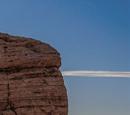






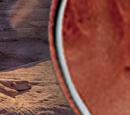






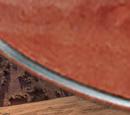























120 East 100 South Moab, Utah 84532 435-259-6177 moabrusticinn.com • Free Wifi • Guest Laundry • Outdoor Heated Pool • BBQ/Picnic Area • Bike Storage/Cleaning Area • Tons of Free Trailer/UTV Parking P fect Location... Great Value! 4x4PARKTOURS 321 North Main Street Moab, Utah 84532 1-800-833-1278 In Moab 435-259-7983 Come Discover MOAB! navtec.com visit us at: NAVTEC Expeditions
complete beginners.
“In the traditional highlining world, without having an extensive slacklining base, you’re not going to take any steps on a highline,” Dickey explained. The strength and skills needed just to get to a standing position on a highline take hours of training, not to mention the skills needed to get back on the line if you fall off and end up dangling from a safety leash.
“For someone who just wants to know what it’s like to be on a highline, I wanted to remove that barrier,” Dickey said. “I don’t think everyone has to find a slackline community and brutalize themselves on a highline to experience that.”
With her setup, Dickey can haul clients back to solid ground if they can’t or don’t want to complete the highline. A top rope safety line above the clients — who are outfitted with full-body harnesses — along with a balance-as-
sisting cord available on each side, make walking the webbing easier and less intimidating.
Why seek that experience? Dickey believes it’s empowering.
“Challenging those primal instincts to stay away from ‘the void’ is really good for everyone,” she said. “It’s such a mental sport that it forces you to see what’s going on in your mind, which isn’t always comfortable.”
She still derives clarity and rejuvenation from practicing the sport herself. After a highline walk, she said, “I always feel like it was good for me, good for my mood.”
Her business, Elevate Outdoors, also offers guided rock climbing, canyoneering and hiking. Slacklining, though, was Dickey’s entry point into the world of outdoor sports. When she first tried it in her late teens, joining a casual group in a public park, she didn’t know it would grow into a passion.

“I never intended to highline,” she said. “It seemed impossible at first.” But the same motivation that had driven her to master the slackline pushed her to learn to do it hundreds of feet up in the air. It was hard.
“I thought I’d walk it once, then quit, because clearly I’m not cut out for this,” she said with a laugh. Instead, she went on to become a leader in the sport. Her highlining journey led her on travels around Europe, landed her jobs doing stunts for films and commercials, and inspired her to found a women’s highline festival.
After years of the lifestyle, however, she started to burn out on constant traveling. Injuries and fatigue made it hard to progress in the sport. She and her boyfriend decided to try staying
28 | utahstories.com
Faith Dickey, owner of the first guiding service in the U.S. to offer a highline experience.
PHOTO BY JACK GREENER



somewhere for a while. They chose Moab, a place they had both visited and liked.
The idea of starting a highline guiding business occurred to Dickey while she was working at a food truck. A perfect combination of ingredients make Moab a highlining mecca: there are lots of deep canyons with steep sides and flat tops, relatively easy to get to. Dickey sums it up as beauty, height, and access. She wondered if there was a market for her business idea.
Around that time, a pair of women she had never met contacted her through Facebook and asked if she would be willing to give a highline coaching session. With that encouragement, she committed to becoming a business owner. She built up her guiding credentials, sought out insurance, bought the equipment she would need, registered her business and set up a website. It was daunting, but Dickey approached it with her characteristic determination.
“I don’t typically wait for things to happen to me,” she said.
Dickey put a lot of thought into the tone and focus of Elevate Outdoors. She’s proud to be one of the few woman-owned guiding businesses in town, and she hopes to encourage other women in outdoor sports, guiding and entrepreneurship, as well as offer women clients a safe space to feel vulnerable. She looks forward to giving back to the community, once she’s established, by offering guiding or coaching sessions for local youth. She’s passionate about making sports accessible to people
with disabilities — on her website, she encourages people to contact her to talk about how their situation can be accommodated. Being a pioneer in the highline guiding niche, Dickey had to think deeply about how she wanted to approach it.
“I had to reinvent myself, but I also had to reevaluate the sport and what was valuable about it,” she said. It wasn’t just about breaking records, it was about showing people what they’re capable of.
“I had to change how I was doing it — I had to share it, and make it about the experience,” Dickey said. She wants that experience to be meaningful for her clients — an experience of self-reflection and growth.
“I want people to reach out to me because they’re interested in managing fear,” she said. “I want to create a company culture centered around empowering people and helping them feel alive. [I want them to leave] knowing more, more capable, feeling like they can take on more challenges.”
So far, Dickey said, it looks like that’s been happening.
“Everyone’s been stoked,” she said of those she’s guided on the Sky Walk so far.
Dickey described one client who stepped on to the line with nonchalance, but halfway through was literally yelling at herself to generate the motivation to complete the cross. At the other side, she cried tears of triumph.
“It seems like they’re letting something go,” Dickey said.
30 | utahstories.com
I want people to reach out to me because they’re interested in managing fear.



























Moab, Utah 84532 apachemotel.com Moab, Utah 84532 apachemotel.com EXPERIENCE THE WILD WEST AT APACHE MOTEL


MILE MARKER 14, HIGHWAY 128 80 Suites/30 Cabins on the Colorado River Phone: 435.259.2002 | www.redcliffslodge.com @redcliffslodge
SCAN TO SEE ALL AVAILABLE AMENITIES & ACTIVITIES













Utah’s gift shop kings
Ogden’s Historic Rainbow Gardens History & Niche
By Francia Henriquez Benson
Ogden’s Rainbow Gardens, a one-ofa-kind tourist destination, is a new place to add to your bucket list. Nestled at the mouth of Ogden Canyon, the eclectic venue welcomes visitors seeking gifts, food, and fun.
The place has a history, and is a gem passed down from generation to generation. In the late 1800s, it was the Ogden Canyon Sanitarium Resort, and tourists came from near and far to soak in the pools.
In 1938, Ogden’s mayor, Harmon W. Peery bought the resort. He later turned it over to his daughter and son-in-law, Rosanne and Bob King. It once was a
night club with indoor and outdoor pools, a ballroom, and a bowling alley.
The creativity of the King family has no limits. What was once the indoor pool is now the Gift Garden, an area filled with exotic plants and patio decor. It is the favorite room for plant lovers. Every year the owners change the themes. This year, it is butterflies.

The main gift shop, Rainbow Gardens, fills the ballroom where young and old once gathered for marathon dances. The shop has an array of gifts from around the world, and visitors will find everything from crystals to t-shirts, Utah stickers, unique notebooks, travel
PHOTOS BY FRANCIA HENRIQUEZ BENSON
34 | utahstories.com
OGDEN
Jennifer KingFrancl and Bill King.



FREE mouth of ogden canyon | 801-621-1606 | www.rainbowgardens.com Mon-Thurs 10-8 Fri-Sat 10-9 Sun 11-7 HONEY FOR YOUR OUT-OF-STATE GUESTS! Guests must be present and show out of state ID | Limit one jar per family It’s always a pleasure to welcome friends and visitors to our store. We hope you enjoy your visit and all the GIFTS, FOOD & FUN under the Rainbow! 167 Historic 25th St, Ogden, UT, 84401 | Tue-Sat 10-7PM (801) 621-4247 | www.alaskangoldconnection.com Custom Design • All kinds of repair Master Jeweler working onsite Turn your old jewelry into something new and exciting Come in and see some amazing natural gold nuggets
bags, fashion accessories, and totes from Vera Bradley.
The handmade candles and candies are visitor favorites. The shop currently sports rainbow candles in different shapes. Patrons can also buy handmade honey and syrup, and Rainbow Gardens has a mix of locally made and international items.
Jenny King Francl, one of the owners, goes on shopping sprees to find the best items for the Gift Garden. She has already bought Christmas ornaments that will be on display starting in August. During the Christmas season, the shop transforms into a Christmas village, with ten themed Christmas trees, five large display windows and decor on the porch overlooking the river. Shoppers enjoy the festive experience while listening to the river’s soothing sound. During summer, the porch is filled with garden decor.
Something else that makes a trip to
the Rainbow Gardens worthwhile are the five hiking trails nearby. Bikers and hikers can spend their day on the trails before cooling off at the Greenery Restaurant. As the name implies, the inside is adorned with beautiful plants. This iconic restaurant has been open here for more than thirty years, and is most famous for its delicious Mormon muffins. It serves lunch and dinner, and people can eat outside while enjoying the picturesque mountains. Breakfast is served on weekends.
Bill King, one of the co-owners, said families celebrate there to remember the nostalgic times when, as children, they visited with their parents. He added that they have a lot of visitors from Davis, Weber and Box Elder Counties and beyond.
Your summer bucket list won’t be complete without a trip to Rainbow Gardens.

36 | utahstories.com

Award-winning realtor in northern Utah dedicated to providing a community-focused and elevated real estate experience. 801-391-8503 | Ashley@theelementsofrealestate.com ashleywolthuis.remaxogden.com | @ashley_wolthuis_realtor RE/MAX Associates Utah More than just opening doors
Entree special at Hunt & Gather: Cast-iron seared steak marsala. Filet tips on garlic toast, portobello mushroom and marsala sauce, porcini butter mashed potatoes and seasonal vegetables.

SUmmer in red rock country
Capitol Reef & Boulder, Utah Have Fixes For Foodies
By Heather L. King
When Utahns think of the towns of Torrey and Boulder, Utah, they tend to think of them as “southern Utah”, with the heat and tourist-filled national parks and monuments one might expect. But due to elevation, the weather in Red Rock Country — particularly in July and August — is similar to Park City, which means it’s often 10 to 15 degrees cooler than the neighboring Big 5 destinations.
Where to Eat and Play in Boulder
Sweetwater Kitchen
3995 Hell’s Backbone Road, Boulder, UT
Located in the main lodge at Boulder
Mountain Guest Ranch, Sweetwater
Kitchen is named after the stream that runs through the property. Views of the landscape captivate diners seated on the wrap-around patio — perhaps with a Sand Creek cocktail in hand made with Ogden’s Own Madame Patrini Gin. Enjoy beef sourced directly from the ranch via the steak frites with decadent anchovy butter, or lighter fare like the blackened trout salad with homemade Caesar dressing.
Wild Indigo Café
Hills & Hollows 840 W Highway 12
Boulder, UT
Place your order for classic American-style breakfast, Indian street food-inspired cuisine at lunch or a changing dinner menu
PHOTOS BY HEATHER L. KING
38 | utahstories.com
FOOD & DRINK











Burger obsessed? Heck, yes! 206 S. West Temple | 801.890.5155 Open Mon-Sat 11am-10pm, Sun 4-9 | fatjacksut.com Enjoy a Cold Beer on the Patio this Summer! Perfect Spot with Unique Beers, Craft Cocktails, Music, and Dance 154 West Utopia | South Salt Lake, UT 435.200.3009 | shadesbrewing.beer 366 South State St | Salt Lake City, UT 385.341.8150 | shadesonstate.com Shades Taproom moving in September to the Engine Block Building on 300 W and 1300 S.
on Tuesdays and Wednesday evenings from the brightly painted food truck on the hill. Opened in March 2023, creator Lacy Allen’s “food with flair” features a wide selection of items including a waffle sandwich and chai to dosa hot dogs and fried green beans with housemade chutneys and sauces. Cool down with a mango lassi, and be sure to visit Cache Canning in the shops next door to pick up pickled, preserved and grown fruits and vegetables. Wild Indigo Café is located at Hills & Hollows Market, with cheery outdoor seating with a view.
Magnolia’s Street Food
Anasazi State Park Museum 460 N Highway 12
Boulder Town, UT
This breakfast (served until 11am) and lunch bus can be found permanently parked at the Anasazi State Park Museum in Boulder dishing up massive and tasty tacos and burritos seven days a week. Magnolia’s Pancho & Lefty’s breakfast burrito is an adventure-fueled start to the day. Fresh-made agua frescas or Colorado River Coffee Roasters cold brew complete the meal. The vibrant kimchi breakfast tacos come as a pair featuring homemade kimchi, a fried egg, green chiles and grilled onions. Add local sausage for $2 more. If destinations take you south to Escalante, Magnolia’s has recently opened a second location there as well.
Torrey
Situated just outside of the west entrance to Capitol Reef National Park, Torrey is a quaint and friendly location on the Capitol Reef Scenic Byway (Highway 24) surrounded by green pastures, rose-colored cliffs and a tight-knit community you’ll be delighted to get to know.
Where to Eat and Drink in Torrey

Capitol Burger
The Chuck Wagon
12 W Main Street, Torrey, UT
What do you get when two professional chefs own a food truck in Torrey? The #4 best restaurant in a five-state region according to Yelp. Luke Fowles, owner and chef of Capitol Burger, and his wife, co-owner, and pastry chef Sunny Clark, do everything differently than your average burger joint — and it shows in every bite of the six burgers they sell in the parking lot of The Chuckwagon. The couple grind the beef for the patties fresh every day it’s served, make their own American cheese, pickles, mayo and aioli. Each burger has its star ingredient that’s drool worthy — from the roasted green chiles on the mac n cheese burger to the garlic cremini mushrooms and blue cheese on the mushroom blue burger.
Hunt & Gather
599 W Main Street, Torrey, UT
As the name implies, Hunt & Gather utilizes ingredients like wild game, fish, fruits, vegetables and goat cheese that’s been hunted or gathered from local purveyors. Lettuces, herbs and fruit are grown both on property and at the home of owners/chefs Chet and Nancy Saign, while mushrooms are foraged from the nearby hills. The dinner menu is divided into Hunter or Gatherer, where entrees such as a filet of elk is seared and served with chevre from nearby Mesa Farm and house-smoked and cured meats grace the charcuterie board. Hunt & Gather serves local hard ciders and spirits from Etta Place Cider and Robbers Roost Distillery across the road. Chef Chet uses his years of experience working in some of the best restaurants in Salt Lake and on the East Coast to coax delicate flavors out of each and every sauce.
40 | utahstories.com
Dessert at Hunt & Gather: raspberry and lemon curd meringue with fresh raspberries dusted with powdered sugar.







ENJOY THE COMFORT OF CLASSIC SOUTHERN CUISINE 77 West 200 South Salt Lake City, UT 84101 (385) 485-5777 homecomingslc.com 110 W Broadway Salt Lake City, UT 801-890-6612 Monday - Saturday 5:00 pm - 10:00 pm Sunday: 5:00 pm - 9:00 pm Filet Mignon or Halibut $29.99 5:00 to 7:00 nightly
Etta Place Cider
700 W Highway 24, Torrey, UT
Ann Torrence and Robert Marc have 90 different kinds of heirloom apples growing in their high-elevation orchards in Torrey. They never planned to make hard cider, but today, they operate and experiment via Etta Place Cider, taking apples from tree to bottle in about 6 weeks. The cidery makes handcrafted and seasonal hard ciders featuring the fruits of the orchard and southern Utah. Visit the tasting room on the west end of Torrey to sample their best-selling Etta Place Dry, the latest bottles such as the Etta Place Gingered, which can be used in a cocktail that might otherwise be topped with ginger ale, and purchase limited edition delights like the Etta’s Reserve Fig Mead.
Robbers Roost Distillery
700 W Highway 24, Torrey, UT
Sharing space with Etta Place Cider, Robbers
Roost Distillery is the Torrey outpost of Waterpocket Distillery from Salt Lake. The wild and adventurous spirit of the west is at the heart of owners and distillers Alan and Julia Scott’s desire to reintroduce pre-Prohibition herbal spirits, bitters and long forgotten liqueurs to adventurers seeking unexpected flavors. The Scotts are now offering tastings of distilled spirits found only in red rock country under the Robbers Roost label, as well as many offerings from their full line of spirits.
Color Ridge Creamery
135 E Main Street, Torrey, UT 84775
Color Ridge Creamery began as a way for owners and husbands Joseph Shumway and A.C. Ivory to fill the void of a really good ice cream shop in Torrey. Joseph, who helped reimagine his family’s dairy
farm in western Wyoming by becoming an ice cream chef, makes all the ice cream at Color Ridge. The 8 flavors available at any time may change throughout the day or weekend, but it’s easy to try multiples with their three or five-scoop flights in custom-thrown pottery dishes. They also offer ice cream shakes that allow for mixing and matching of two flavors in a cute glass mug that’s instantly Instagrammable.
Wild Rabbit Café

135 E Main Street, Torrey, UT
The lines out the door at Beth Rumsey’s Wild Rabbit Cafe on most weekends hint at the delicious baked goods, Shooke Coffee Roasters coffee and hearty breakfast and lunch offerings found inside. Try the fluffiest biscuits and gravy made with local Oyler Family Farms sausage, or a farm egg scramble with your choice of protein, bread and cheese surrounded by plenty of sauteed vegetables.
Shooke Coffee Roasters
135 E Main Street. Suite 107, Torrey, UT
The name Shooke Coffee Roasters started as a family joke about owners Shawn Passey and Brooke Salt’s celebrity name. But coffee is no laughing matter as the couple works diligently to bring out the best in every coffee bean sourced from small farmers around the world. Passey brings his years of expertise as a professional coffee roaster to the table along with connections made through Fair Trade USA to blend together Boulder Mountain Breakfast Blend and Cathedral Valley; a mix of beans from Indonesia and South America. Drink Shooke Coffee at Wild Rabbit Café two doors down, and then take their roasted whole beans home from their shop via an online subscription.
42 | utahstories.com
Cast iron asparaugs at Hunt & Gather. Asparagus spears, fire-roasted peppers, pine nuts and smoked Dijon vinegarette.











feldmansdeli.com 2005 East 2700 South Salt Lake City 801.906.0369 AUTHENTIC JEWISH CUISINE Done Right Concert Series on Friday Nights Pati� i� Ope� 1693 S 900 E, SUGARHOUSE, UT (801) 906-8864
cAPUTO’s saves a unique south american strain of cacao
Wild Chocolate Is Like Nothing You’ve Ever Tasted Before
By Amiee Maxwell
Want to drive your taste buds wild and preserve biodiversity at the same time?
Caputo’s Market and Ritual Chocolate have teamed up to create a chocolate bar made from a rare type of wild cacao harvested from the Bolivian jungle — Caputo’s Wild Tranquilidad.

Ritual Chocolate co-owner Anna Seear says it’s been an honor to work on the project which helps preserve the biodiversity of cacao by supporting farmers that are working to preserve rare crops.
“We want people to see how special these beans are and how worthwhile it is to keep them around,” says Seear.
Although cacao is native to South America, today, seventy percent of the world’s cacao is farmed in West Africa. Since commercial strains are often bred for high yield, chocolate made from these beans is often lacking in flavor
and enhanced by other ingredients. In contrast, wild chocolate is made from beans naturally growing in the Amazon rainforest. So, for those of us used to eating Hershey’s and even the fancier-appearing brands from Whole Foods, wild chocolate is like nothing you’ve ever tasted before. Cacao farming also drives deforestation in nearly every country where it is farmed, and is often linked with poor labor conditions.
Seear says that when she was first getting into the world of wine and cheese, she was amazed by the incredible variety, but when it came to chocolate, finding high quality was a challenge and options that made you feel connected to the source were lacking. When she and her partner, Robbie Stout, founded Ritual Chocolate, they dedicated themselves to sourcing beans from farmers growing in sustainable ways and paying fair prices. This is their first venture
PHOTO BY KAELYN KORTE
44 | utahstories.com
Tastes Better



into creating a product with wild cacao.
Caputo’s Wild Tranquilidad bar got its start nearly a decade ago when Caputo’s donated money to Volker Lehmann, a German agronomist who had discovered a previously unknown type of cacao growing in the Bolivian rainforest. Despite how rare and unbelievably delicious Tranquilidad cacao is, attempts to get the cacao to market have been thwarted by fire, floods, drought, and other challenges.
Essentially, not enough money was flowing to the farmers to ensure Tranquilidad’s success and this is where Caputo’s comes in. Caputo’s arranged to purchase Tranquilidad’s cacao at top dollar and also give a full dollar back to them for every chocolate bar sold. This is many times more than what a traditional cacao farmer would receive.
After countless roasting trials and test batches to ensure all the flavors come to the forefront, Ritual Chocolate created what may be one of the best tasting dark chocolate bars of all time. “It’s really such a special chocolate,” says Seear, “I’m so excited to share it.”
Caputo’s Wild Tranquilidad bar is the second of what Matt Caputo hopes will be an entire line of wild chocolate bars. The first bar in this line is Wild Jurua, a bar made from a rare cacao foraged in Brazil’s Upper Amazon, which Caputo describes as tasting like an “uncharted tropical fruit I’ve never tasted before.”
Wild Jurua was at risk of being dis-
continued due to the increasing challenges of bringing the cacao to market, so Caputo offered to pay for the entire harvest upfront and essentially saved this unique strain from disappearing altogether.
Both the Wild Jurua and Wild Tranquilidad bars were created through Caputo’s Preservation Program. Caputo says it’s been frustrating to see how our global food system drives biodiversity loss.
“We have really wonderful food traditions that are being squeezed out,” he says.
His work with the preservation project is his way of fighting back and helping to preserve these rare crops like Wild Tranquilidad.
“It’s a big fight but we truly believe that our generation, if not the next generation, can change our entire food system for the better,” he says.
He does realize that his deli in Salt Lake City may not be able to shift the entire food industry, but at least they can guarantee some tangible victories along the way.
Seear says that she hopes Caputo’s wild cacao series can help educate people about the problems in the chocolate industry and get people thinking about why it’s worthwhile to think about your chocolate sources. With every Wild Tranquilidad purchase, chocolate lovers can join Caputo’s and Ritual Chocolate in preserving biodiversity, and ensuring that farmers are paid fairly for their work, not to mention tasting something truly extraordinary.

46 | utahstories.com
PHOTO OF MATT CAPUTO: CHASE PINKNEY/CAPUTO’S
Matt Caputo

















TM 376 8th Ave, Unit A (between D & E Street) SLC (801) 532-4912 hatchfamilychocolates.com facebook.com/hatchfamilychocolates @hatchfamilychoco Tues-Thurs 1-9pm | Fri & Sat 1-10pm Closed Sunday & Monday with Goran Strbac Saturdays 7:30 pm
2747 S. State Street, South Salt Lake City, Ut. 84115 | www.delicebakeryslc.com | (801) 953-1910 Monday- Wednesday from 7:00 am - 7:00 pm | Thursday-Saturday from 9:00 am - 9:00 pm
LIVE MUSIC LIVE MUSIC
THe Food for families Project
Small-Scale Farming Has A Big Impact
 By Kelli Christine Case
By Kelli Christine Case
Volunteers work on the village cooperative garden in exchange for produce. Shares also go to homeowners in the neighborhood and families in the community.
48 | utahstories.com
PHOTOS BY DUNG HOANG
Stagl Organics, a partner to the Village Cooperative (also known as ‘the Village’ or ‘the Village Farm’) will grow 100 shares, while the Village will grow 40 shares. (A share is a weekly box of locally grown produce.) The Green Phoenix Farm is undergoing some transitions and will begin growing food for this program in 2024.
This grant opens up the capacity of these farms to sell far more produce in 2023, 2024, and beyond. The Village Farm expects to triple its operations this year. Meanwhile Stagl Organics, which was on the brink of shutting down, will now continue to function for at least three more years. All three farms are located on the west side of Salt Lake City, in neighborhoods considered to be food deserts, or places where there’s a scarcity of access to fresh, healthy food.
With increased capacity, the farmers hope to use this momentum to engage more volunteers and to demonstrate what’s possible for the small-scale farming scene in Salt Lake City. Since receiving this grant, there has been a tremendous upswell of community support, with 120 volunteers already showing up to install new gardens as well as preparing and planting spring beds.
Every Village Cooperative garden is located on the west side of Salt lake City, in the backyards of homeowners in those neighborhoods. The Village Farm follows a “one-thirds” model for distributing the food they grow; homeowners receive a weekly share of produce, volunteers receive a share, and the other third goes to families in the community.
“This is truly food with a cause. It’s
not just being grown for market value. It’s for the betterment of the community. It’s being grown both for people who have the means to shop locally and for people in need to receive help,” Mann says.
One aspect of the Village Cooperative’s mission is to use local food production to connect inter-faith communities around Salt Lake City. The Village has partnered with the Islamic Society of Bosniaks in Utah, the Guadalupe Catholic Church, and the LDS Church in past years to grow and distribute fresh, healthy food. The Islamic Society of Greater Salt Lake has partnered with the Village as their food distribution hub for this project, so many people in their congregation will receive shares.
Mohamed Jama of the Islamic Society of Bosniaks in Utah said, “Nutritious food is desperately needed for our less fortunate Muslim community members. Receiving fresh vegetables weekly goes a long way in helping to ward off disease and maintain their health.”
Darin Mann commented, “This program model shows how it’s possible to sell produce, help those in need, and give back to community volunteers. It shows how it’s possible to build a localized food system that’s independent from industrial agriculture, while increasing food security and community resilience.”
He went on, “There is massive food production potential in Salt Lake City that’s generally underutilized. This kind of small-scale urban farming can address food deserts along the west side of Salt Lake City, while providing life-enriching jobs and economic development to the area as well.”
Some local farms have had to shut
utahstories.com | 49
down in recent years. Urban farming has been losing land as parcels have been re-zoned for residential housing developments that were previously zoned for agriculture. Lawns require a lot of water only to produce a monoculture of grass. These local farmers would like to see them converted into food-producing green spaces, such as community gardens and urban farms, which enhance the diversity of pollinators and other species in the area, improving farming objectives and enhancing life for everyone in the area.
These Salt Lake City farmers hope to see small farming continue to gain traction in Salt Lake City, so locally-grown, fresh, healthy produce is available to all who would like it, and not just a niche market for the affluent. Even though the Food for Families Project is a huge leap for the urban farming scene here, they hope it’s just the beginning.
Shares in the Food for Families Project are sold out for 2023. However, it’s not too late to get involved. You can volunteer at the Village Farm and become part of the community there, which is the best way to be notified
when shares become available in 2024. Salt Lake’s urban farming scene just got the largest infusion of cash, maybe ever, thanks to a joint effort by farmers of the Utah Food Coalition. The Village Cooperative, alongside Wasatch Community Gardens and Stagl Organics, has recently been awarded a $380,000 grant from the Utah Department of Health and Human Services. It is meant to bolster the efforts of urban food production in Salt Lake City and to provide local, fresh, healthy food to families in need.
Darin Mann, founding member of the Utah Food Coalition and founder of the Village Cooperative Farm, presented the idea to other farmers in the coalition in 2022, and together they applied for the grant. It will fund the Food for Families Project, which is a partnership between the Green Phoenix Farm of Wasatch Community Gardens, the Village Cooperative, and Stagl Organics, to grow and distribute 140 annual shares for Salt Lake families experiencing poverty and those in marginalized communities, entirely for free.

50 | utahstories.com
Doing the hard work in the garden.



















What could be better? Local Fresh Taste www.Taggesfruit.com 801-755-8034 Visit our 5 Fruit Stands in Salt Lake City New Location! Masonic Temple Parking Lot EBT and Double Up Accepted CHERRIES BERRIES (801) 973-9158 | Mon-Sat 9 AM - 6 PM | 3910 S. Redwoood Rd www.lambertgrowers.com REOPENING AUGUST 12, 2023 Beets, Chard, Lettuce, Spinach, Kale, Cabbage, Cilantro, Collards, Green Onions, Garlic, Peas, and More... CLOSED FOR SPRING GREAT SELECTION OF FALL VEGETABLES Sign Up for Our Newsletter A WIDE VARIETY OF PERENNIALS AND HOUSEPLANTS
The legacy of johnson farms
‘Progress’ Threatens Family Farm
By Brooke Hannel
In Benton, Utah, you will find Johnson Farms — a farm that has been in the Cache Valley and run by the Johnson Family for more than a century. What started as a dairy farm has become a haven of vegetables and other produce. It is a rare departure from commodity to vegetable farming, yet the Johnsons did it.
“Great-grandpa decided to sell the
cows,” explains Kelby Johnson, current head of the farm alongside his brother. “Then, Dad decided to take over the ground, but a chunk of it was just grazing field crops. And then my brother and I wanted to be part of it and it didn’t make any sense to only do that, so that’s when we decided [in 2007] to make the transition to vegetables.”
The reason for switching to veg-

52 | utahstories.com
PHOTO COURTESY OF JOHNSON FARMS
Kelby and Braydon Johnson help out on the family farm.
etables? It’s a more profitable crop, however, there’s quite a risk in growing vegetables, but as the saying goes, ‘with great risk often comes great reward.’

“The primary focus is vegetable crops, and the reason is we’re not making enough money on just commodities,” says Kelby. “We [me and my brother] decided that we needed to do something that made more money, and that was vegetables. They’re a lot more work and they’re a lot more risk, but they do generate a higher profit per acre.”
Some risks of vegetable farming are that the crop could just come out bad that year or may not look as appetizing. Kelby mentioned that people eat with their eyes, and if the vegetable doesn’t look dolled up, it’s harder to sell.
“Vegetables are very particular crops in the field; it doesn’t take much to goof them up, and if you goof them up, you’re done for the year,” explains Kelby. “You also have a pretty small window to get vegetables sold. When sweet corn is ready you’ve got about seven days to find a home for it. And, if you don’t, you’re out of luck. So they’re very sensitive. They take a lot of time, energy and skill, and you have to be pretty particular about how you raise them so that you don’t screw them up. There’s been a lot of learning curves for us since we started. We’ve had some pretty good successes, and some years we’ve got our butts kicked. It’s not for the faint of heart.”
Definitely not, especially with developers circling the farm. Kelby discussed how the city of Logan has sent letters showcasing interest in transforming the farmland into roads and shops.
“The City Council and Development Committee has sent us a map of our farm with all the houses and roads and everything that they have planned for our farm,” says Kelby. “It’s just frustrating to have them send it in the mail with a note saying, ‘this is our plan for your farm in the future, just so you’re aware.’”
Kelby’s frustrations are warranted, especially because he wants the farm to stay in his family for another century. He mentions how he and his brother would like to pass it down to their sons and so forth, keeping the Johnson legacy alive.
Find Johnson Farms produce at their farm store, Local Produce, 58 W 400 N, Logan, Utah and find them online at Johnsonfamilyfarms.com.
utahstories.com | 53
Vinny Hess, foreground, and Braydon Johnson work on the potato harvester.
Parley’s trail
New Bicycle And Pedestrian Trail Nears Completion
By Tani Leavitt
Parley’s Trail, named after famed pioneer and LDS missionary, Parley P. Pratt, is an 8-mile-long walking and biking path that begins at 900 W and continues in interrupted sections to Parley’s Canyon. This trail and the connections to each section have been underway for many years and should be completed by September.
Afton Holzer, a long-time cyclist and daily user of the trail, talked about her experiences with the sections that are open now.
“I go on that trail every day. It’s awesome. I work right by it. I walk on it every day with my coworkers at lunch and then sometimes I run it. It’s really nice because it’s not all uphill or all downhill. It’s a good variety, so I think it’s especially fun for biking because there’s good stretches of it that are all downhill.”
She does have one critique, however.
“Some of it is right by the [I-80]
freeway, so if you’re walking with other people, it’s sometimes hard to have a conversation because you’re right by the traffic and it’s kind of loud,” Afton explains.
Madeline, a civil engineer who has been in the industry for more than 28 years, joined the project with Parks and Recreation in 2021. Her ambition is to provide alternative forms of transportation like transit, cycling, and walking to get people off the road.
“Since COVID, I think trails have been given another life now that people have realized the importance of connection, being outside, and being able to get from one place to another without driving,” Madeline said.

Madeline’s job was to erect the bridges around 900 W.
“Crossing 900 W is challenging because we had to close it down in order to work on it and then we had to take down the crossing signal line arms, as
PHOTO BY TANI LEAVITT
54 | utahstories.com
SUGAR HOUSE







CommerceandCraft.com 5.125" wide x 1.9375" tall. 1950 S 1100 E SUGARHOUSE SHOPS UNDER ONE ROOF . UNIQUE, Thoughtfully chosen gifts 50% OFF REMNANTS 3663 MAIN STREET IN SOUTH SALT LAKE CITY www.carpetbarnutah.com Open Tues-Fri 10-6, Sat 10-2 Closed Sun and Mon 801.266.1788
well as just getting funding for the project. The project was originally started in 2017, and due to COVID and inflation, the price increased significantly.”
A grassroots group called PRATT mainly funded the project. PRATT stands for “Parley’s Rails, Trails, and Tunnels” whose focus is connecting the Jordan River Parkway with the Bonneville Shoreline Trail.
Parley’s Trail is significant because of its historical beginnings and its longstanding supporters.
Madeline weighs in: “Trails are really important, and now more people are using them. It is a really big deal because now there’s a direct connection all the way from the mouth of the canyon to the Jordan River without pedestrians and cyclists getting into busy traffic, and for people of all abilities, including those in wheelchairs.”
Making this trail accessible for those without cars or disabilities required the use of different designs and technologies for the space available. For Parley’s Trail to be usable and safe, the trail needed to be connected by a bridge which went over dangerous, fast-moving traffic.
“There is an ETA bridge on the south side of the project that had to be taken into consideration,” and it was limited to what kind of equipment you could bring in there due to the construction,” Madeline explains. “The hardest thing
about this project is that, design-wise, it’s very challenging for the structural engineers. Space is very tight, which required drilled shafts to be completed for the structure.”
And these drill shafts had to go deep.
“Normally, bridges are built in a different way using different technologies, but in this case, what we did is build a shaft. We had to go into the ground 50 to 60 feet. That’s how deep the footings are for these structures.”

Another draw to the trail is the Sego Lily Plaza, which is a key area that mitigates floodwaters and contains many species of vegetation native to the area. Andrea, the planner overseeing the end of this project, worked with this section but was unavailable for comment.
The entirety of this project goes back further into Utah’s history.
“Part of this trail has been in the works for many years. It’s probably been out there for 20 to 25 years, and it all started with the master plan. But here we are with the final leg and with a direct connection to the Jordan river,” Madeline said. “Basically, PRATT has shepherded this project from beginning to end … they’ve been a very big part of making this project happen.”
Madeline voiced her gratitude at the opportunity to be a part of that history.
“I will always remember this project as the highlight of my career,” she exclaimed.
56 | utahstories.com
PHOTO
COURTESY OF MADELINE FRANCISCO-GALANG.
Madeline FranciscoGalang, a civil engineer responsible for erecting bridges around 900 W.









Celebrating America’s Craft Breweries with over 300 Brands 128 South Main Street • Salt Lake City Open every day from Noon to 1 am 1035 S. 700 E. | Salt Lake City, Utah 84105 801-997-0002 | www.saltlakeebikes.com Electric Bike Sales, Rentals, Service, And Tours
IMmigrants renew diamond legacy
McKay Diamonds Continues Thanks To Skilled Brazilian Artisans
By Nicole Anderson
The McKay legacy began in 1949, when Robert McKay and his wife Frances started their adventure in the diamond business. McKay Diamonds opened its doors at 157 South Main Street more than 60 years ago. In May 2010, Robert McKay decided it was time to retire. Joe & Sandra Andrade jumped at the opportunity to be a part of the McKay legacy, bringing their family along for the ride, and loving every minute of it.
In the 1970s, far away in Brazil, Joe Andrade took a job as a watchmaker’s apprentice at the tender age of nine, to help provide for his family. Andrade, along with his fifteen siblings, lived a simple life in a modest home where the entire family pitched in to help out.
After a short time, the watchmaker Andrade worked with suggested that he may enjoy working in the jewelry business more than watchmaking. He soon began an apprenticeship with the watchmaker’s
friend, developing skills in jewelry carving and setting, and opening his first jewelry store in Brazil at the age of 17.
It was that entrepreneurial spirit that led Joe and his wife, Sandra — a bank teller when they met — to move to the United States more than 20 years ago, where he worked for other jewelry stores before taking on an opportunity with McKay Diamonds that would change the course of his life.

Andrade’s oldest brother had served a mission in the United States and suggested that he move his family from Brazil. The United States also provided opportunities for them that were lacking in Brazil. He and his wife decided to obtain a work visa and come to America on a trial basis for two years after which they would reevaluate.
When the two-year time frame rolled around, Andrade’s employers didn’t want him to go, but the family applied for US
58 | utahstories.com
PHOTO BY DUNG HOANG
The Andrade Family work together at McKay Diamonds. Left to Right: Allan, Sandra, Kim, and Joe Andrade.
citizenship and officially made America their home.
Andrade became close friends with Bob and Frances McKay, and the two families grew closer through the years. In 2010, Bob wanted to retire to spend more time with his sweetheart in his later years, and that’s when Joe jumped in. He had worked with McKay for many years and knew most of the people that purchased from McKay Diamonds.
Andrade built from what the McKay family started in Salt Lake City, and as the new owner, he would not change what McKay had created — a place where your jeweler is your friend and your experience there will be one to remember.
“I want it to be personal, something with feeling and meaning,” said Andrade. A place where the family doesn’t simply mean his own children, but includes those relationships built over generations.
Andrade’s daughter Kim explained that her favorite part of the family business is creating custom designs. “Engagement rings should show the uniqueness of the relationship of the couple. Customers can choose the center stone and the ring setting, and they can even watch her Dad, Joe, create the ring from beginning to end. The couple is there for the entire process,” she says.
Many customers have a vision of what they want their ring to be. Whatever the style, to be involved in the whole process, to be able to literally watch the production of the ring, is an experience like no other. As a local business, everything is done in the store.
Custom designs allow someone to bring in a sketch or photograph of a piece, and the jeweler creates a mold of the design until the customer is totally satisfied.
These pieces can be created using diamonds and other gemstones that you already have, or can be provided to you from Kay’s selection. The design and production process can take as little as four days, but creates memories that last a lifetime.
Hundreds of reviews tell a story of relationship and honesty, such as, “Joe and Sandra at McKay helped me make this a reality. The necklaces turned out so beautiful and the artistry of the necklaces could not have been surpassed,” said customer Cheryl Cook.
The Andrades import carefully chosen diamonds and jewels from around the world, and each source has a different color hue. Lab-grown diamonds made in the USA are becoming more popular. They are created from a small piece of genuine diamond, inserted into a chamber with carbon and gasses growing the diamond to a larger caret size.
Lab-grown diamonds are much larger and typically 30-40% of the price of a natural diamond. For many, this is a much more environmentally friendly option than a diamond from a diamond mine. Natural alexandrite in large sizes is very rare. Most natural alexandrite stones are small and hard to find, leading the way for more synthetic or lab-grown stones of larger proportions.
Kim began coming to work with her parents when she was 10 years old, mostly running around the store as kids do. However, after she earned her art degree in 2022 from the University of Utah, she took on the challenge of marketing and rebranding to create a more modern vibe, boost sales, increase back-of-house projects, promote social media visibility, and apprentice with her father.
It is hard to imagine historic Main Street without McKay Diamonds, yet due to some changes with the building, the family received a gentle nudge to move to their new location on Regent Street where they built their display cases, painted, and created a beautiful new store while keeping old traditions alive.
Kim loves to hear all the romantic stories of engagements — even the ones where the couple lost the ring. It is a family affair where generation after generation comes to purchase their rings, and become family in the process.
utahstories.com | 59
BEST OF LOCAL UTAH Food & Drink

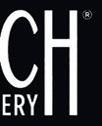





Your neighborhood sports pub: spectacular food, drinks, sports, music, and a fabulous rooftop patio.
Perfect Spot with Delicious Food, Unique Beers, Craft Cocktails, Music, and Dance.

Farm-inspired California cuisine.
Elevated Southern comfort food with a massive wine list.
Great Food! Great People! Vegan Diner, Breakfast All Day, Full Bar, All Made from Scratch.





KiiTOS BREWING

SALTLAKE CITY,UTAH
Tavern - Can Shop - Pinball 608 West 700 South
SALT LAKE CITY
Italian cuisine and wine in an upscale-casual environment.












Exceptional cookie bakery with innovative flavor combinations.
SALT
DOWNTOWN–SLC
DOWNTOWN–SLC
DOWNTOWN–SLC
DOWNTOWN–SLC
SALT LAKE CITY
The finest beef on the most luscious brioche bun.
DOWNTOWN–SLC
DOWNTOWN–SLC
LAKE CITY
SALT LAKE CITY
Fresh authentic and fast. SALT
Casual eatery featuring specialty salads, pizzas, and fresh pasta.
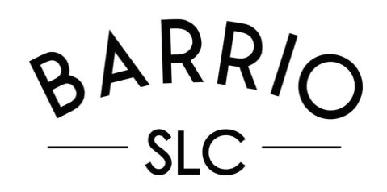




Join us to share laughs and enjoy award-winning beers & pizza!












Rustic-chic cafe. Serving traditional Jewish deli.
Dive in deep with Utah’s finest craft beer. SOUTH SALT

Funky, laid-back co eeshop o ering sweet & savory crepes, plus outdoor seating.




Handcrafted, Small Batch Spirits.


Sugar House’s most famous burger joint.
Historic diner in a trolley car serving American fare in a scenic locale with canyon views.
Bringing the spirits of the past alive in your glass.
LAKE CITY
LAKE
SOUTH SALT LAKE
SUGAR HOUSE
AUTHENTIC JEWISH CUISINE
MILLCREEK
EMIGRATION CANYON
EDEN
MILLCREEK
SUGAR HOUSE
SOUTH SALT LAKE

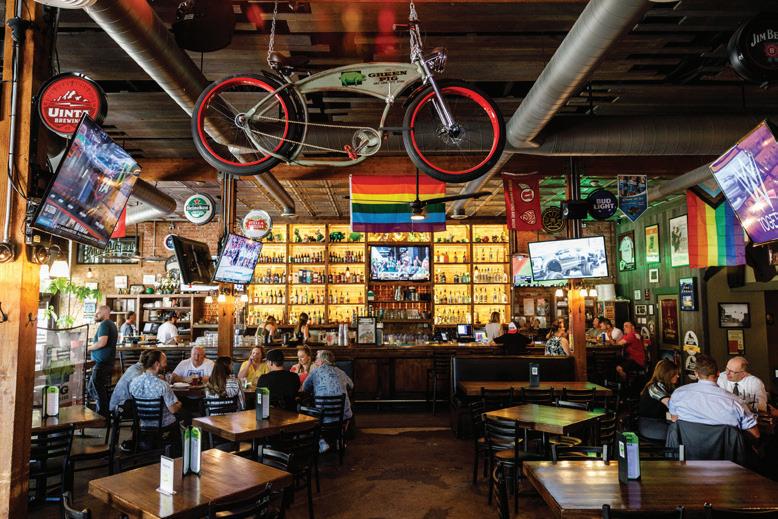
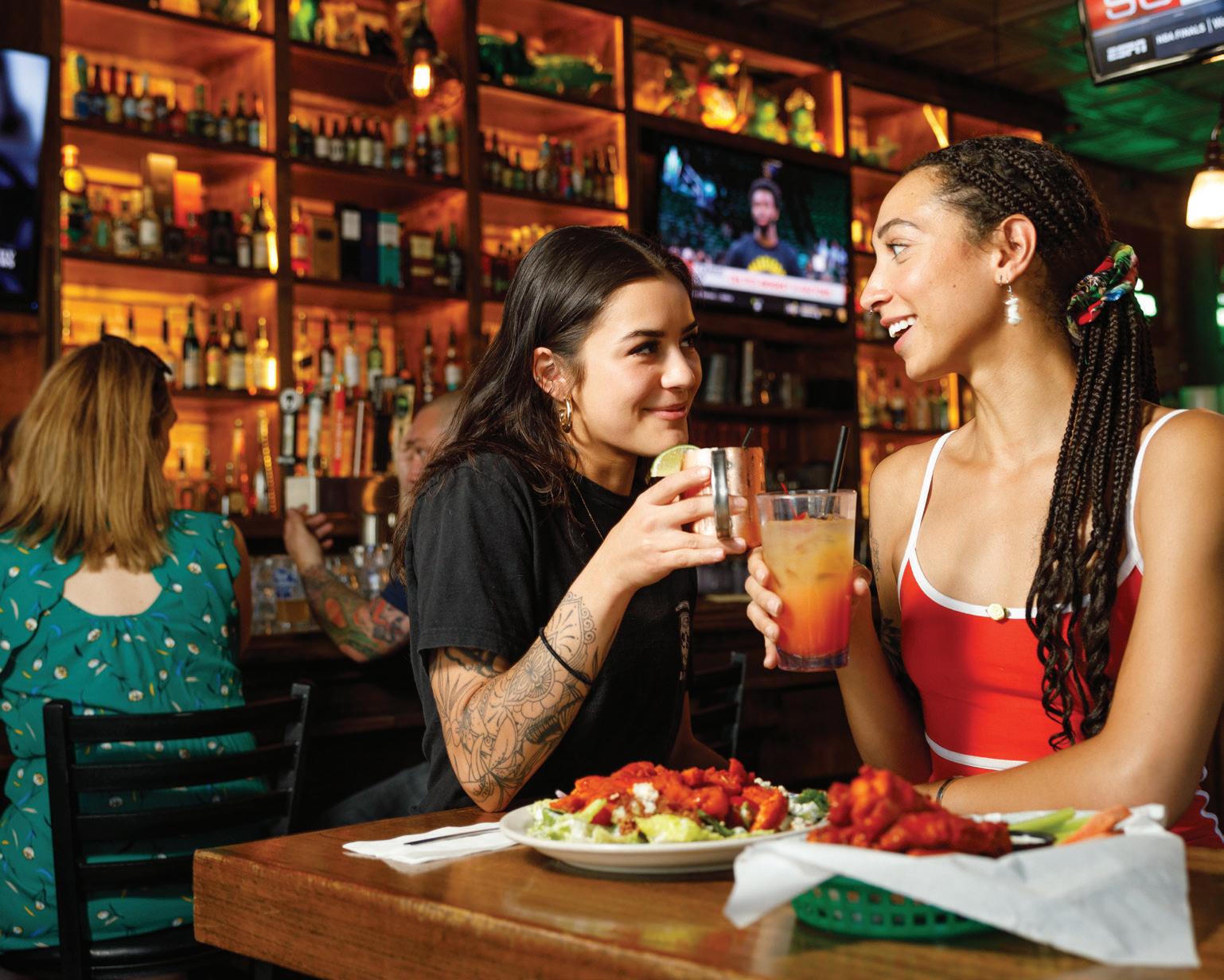










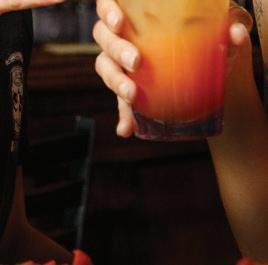



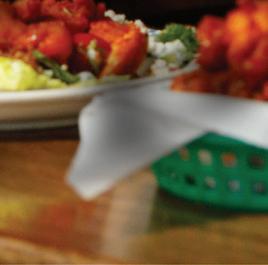
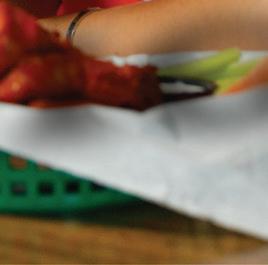




AD TK PARTY LIKE A PIG RELAX IN OR OUT 801-532-7441 31 EAST 400 SOUTH GREEN PIG PUB SPECIALS POSTED DAILY $10 DAILY FOOD SPECIAL Karaoke Thursdays 9pm DJ Latu Fridays 10pm






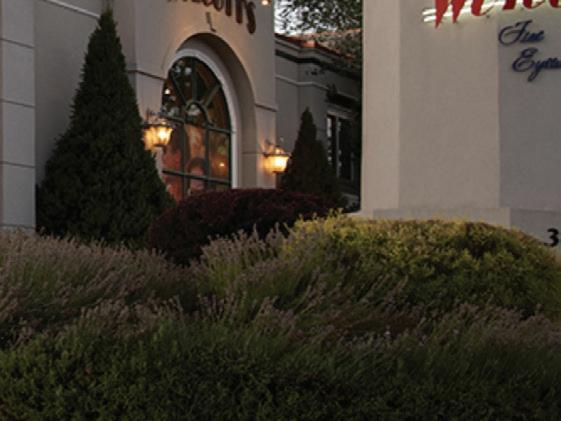


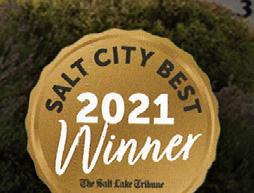



































801.485.4474 | 3145 So. Highland Drive Salt Lake City, UT | wolcottoptical.com Tuesday - Friday 9:00 AM - 5:30 PM | Saturday 10 am - 3 pm Wolcott is your destination... ...For finding your unique style SUMMER MEANS SUNGLASSES! Present this ad for a 20% discount on some new sun wear The unique blend of modern and traditional classic designs. 131 Historic 25th Street Ogden, UT 84401 | thediamondroomutah.com 801-392-3232 | Tuesday - Saturday 10 am - 7 pm | closed Sunday and Monday Serving Utah for over 40 years full custom design • in-house jewelry repair appraisals • cleanings










































 By Golda Hukic-Markosian
By Golda Hukic-Markosian






























 By Holly Lammert
By Holly Lammert
 By Rachel Fixsen
By Rachel Fixsen














































































































































 By Kelli Christine Case
By Kelli Christine Case























































































































































